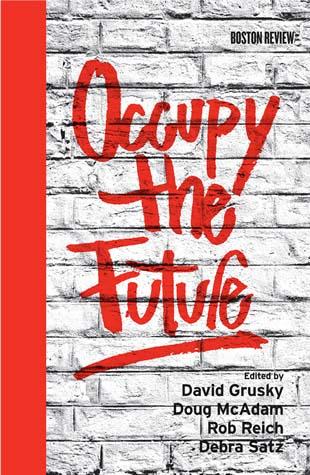
Occupying our thoughts: Issues raised by Wall Street protest
The "Occupy" movement that highlighted the wealth gap between the top 1 percent of Americans and the remaining 99 percent may have faded from the headlines, but a new book from a group of Stanford professors — Occupy the Future — explores how the issues that fueled the initial protests continue to raise questions about the very prospects for our democracy.
The book arose out of a series of opinion pieces that were written for an online forum in the Boston Review. In the fall of 2011, Rob Reich, associate professor of political science and, by courtesy, of education, and three other members of the Stanford faculty — David Grusky, Doug McAdam and Debra Satz — organized colleagues to write short opinion pieces about the Occupy grassroots effort.
“We asked them to reflect not on Occupy as a movement or on its potential for success,” Reich wrote in a recent post on his blog. “We asked instead that they write about the gap between American ideals and actual practices, a gap we thought Occupy had called welcome attention to.”
The contributors have now developed further their short pieces, and expanded what they’d written into short chapters, adding empirical detail and supporting argument. Together they comprise the new book. Reich, Grusky, McAdam and Satz are its editors, as well as contributors.
The book also includes GSE professor Sean Reardon on “Education and Inequality;” GSE associate professor Prudence Carter on “The Double Binds of Economic and Racial Inequality;” and GSE associate professor H. Samy Alim on “What if We Occupied Language?”
The other Stanford contributors are Nobel Laureate in Economics Kenneth Arrow, Paul and Anne Ehrlich, Erin Cumberworth, Kim Weeden, Shelley Correll, Gary Segura, David D. Laitin, Cristobal Young, Charles Varner, Donald A. Barr, Michele Elam, Jennifer DeVere Brody and David Palumbo-Liu.
“While Occupy’s political potency is weaker today than in late 2011, the issue of extreme inequality remains with us,” Reich says on his blog. ”We hope Occupy the Future contributes to continuing conversation about the causes, significance, and when appropriate, remedies of such inequality.”



